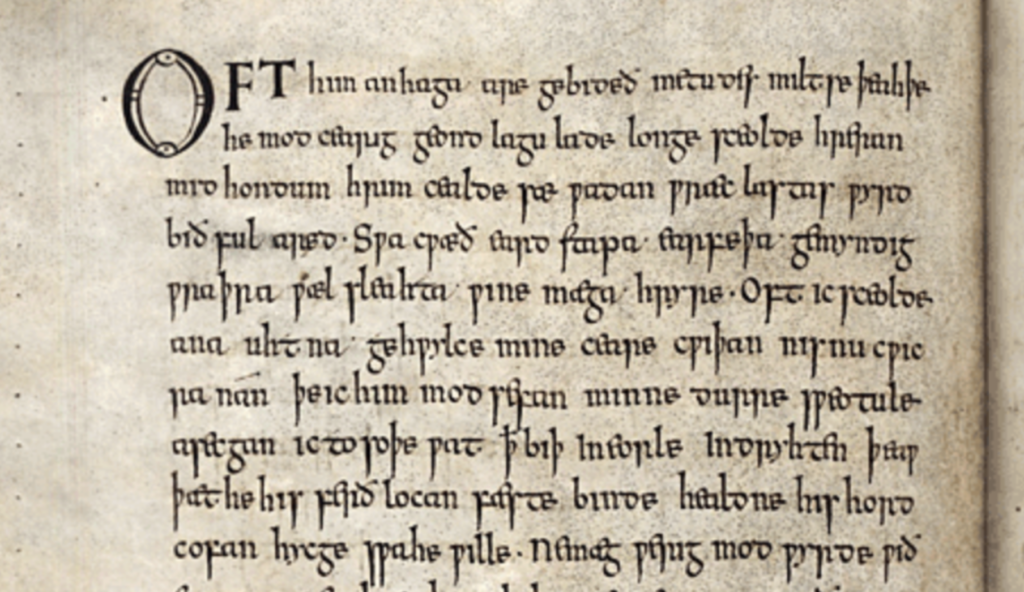To live in a world where one feels lost is, by no means, to live at all. This sentiment is perfectly described in the Anglo-Saxon lament “The Wanderer”, taken from the Exeter Book, which contains around 975 more poems that would have been otherwise lost in time. Despite the inherently melancholic mood contained in the work, the speaker also presents a spark of hope: perhaps one could learn how to belong, even if alone in an age of the unknown, where everything that used to be, has changed. In this essay, these aspects of grief and loss will be discussed.
In the poem “The Wanderer”, the speaker narrates his feelings of loneliness, since all his comrades have died in war and all the old customs and culture are gone. This imagistic aspect of remembrance entails an almost funerary mood, as if he stood before all those things he held dear, bidding farewell. Such mood is very common in late Old English poetry due to the gradual conversion to Christianity, and the loss of the Anglo-Saxon culture, which was so dear to them.
It is also worth noting how this feeling of loneliness and grief can bring hope, even if one is surrounded by the unknown. As the speaker walks alone, remembering days long gone, he also describes how after all the destruction and war his people endured, they will finally be able to rest safe in the afterlife, where no danger shall threaten them. This hope makes him go on, living his lonely life, expecting to one day also be able to meet his comrades again in this heavenly fortress of afterlife.
This development of ideas shows how the sense of community was important to the Anglo-Saxons, and by no longer having anyone to ease the speaker’s melancholy, he resorts to telling the tale of his people. This knowledge is only granted to modern society because of its preservation in the written form, and it is not only crucial to the studies of history, but also valuable for our understanding of the customs of these ancient societies.
